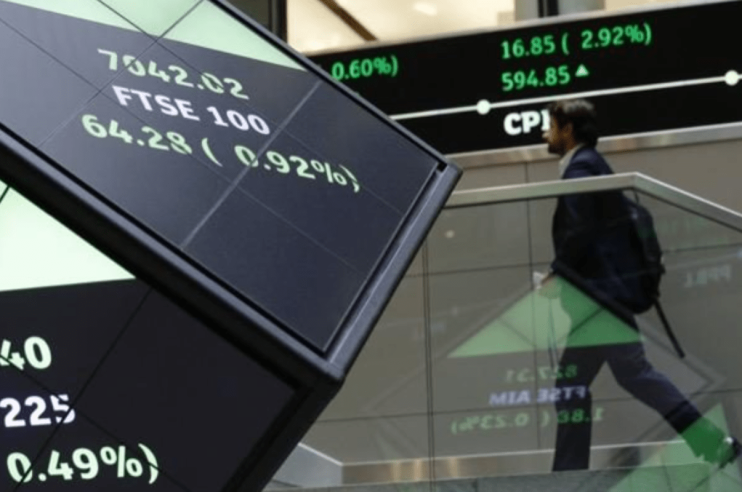FTSE 100 closes at new record but misses out on all-time high

The FTSE 100 set a new record closing price at the beginning of the week, although it fell narrowly short of its all-time intra-day high set last February.
The blue-chip index jumped 1.6 per cent on Monday to close at 8,023.87. Its previous record level at the end of a day’s trading was 8,012.53. The midcap FTSE 250 also had a strong day, gaining 1.1 per cent to end at 19,599.39.
During the day, the FTSE 100 traded as high as 8,040, agonisingly short of the 8,047 it reached in February last year.
There were a range of tailwinds for the FTSE 100 on Monday. Many of the day’s strongest performers were retailers, benefiting from a positive assessment of consumer conditions published by Jefferies.
Research from the investment bank suggested that households would see “substantial” levels of disposable income over the coming year thanks to falling inflation, which could provide support for retailers and supermarkets.
M&S rose 4.2 per cent, Sainsbury’s 3.9 per cent and Next 3.1 per cent after Jefferies upgraded the stocks to a ‘Buy’.
Markets also priced in an earlier start to interest rate cuts following dovish comments last week from Bank of England rate-setter Dave Ramsden.
Traders moved to fully price in a rate cut in August with two cuts expected over the course of the year. This reversed hawkish market moves last week following slightly hotter than expected wage and inflation data.
“There is still optimism around about the prospect of interest rate cuts coming later in the summer, which appears to have help the FTSE 100 climb higher,” Susannah Streeter, head of money and markets, Hargreaves Lansdown said.
The FTSE 100 was not the only market to notch gains on Monday, with both European and US indices rising. This likely reflects perceptions that geopolitical tensions are easing in the Middle East.
“Fears on this front had abated…following signs that Israel and Iran were stepping back from any further escalation,” Rupert Thompson, chief economist at IBOSS said.
The FTSE 100 has been trading around the 8,000 mark ever since late March, when the Bank of England suggested that interest rate cuts were on the cards this summer.
However, geopolitical concerns and stubborn inflation across the Atlantic have prevented London’s premier index from making further gains.